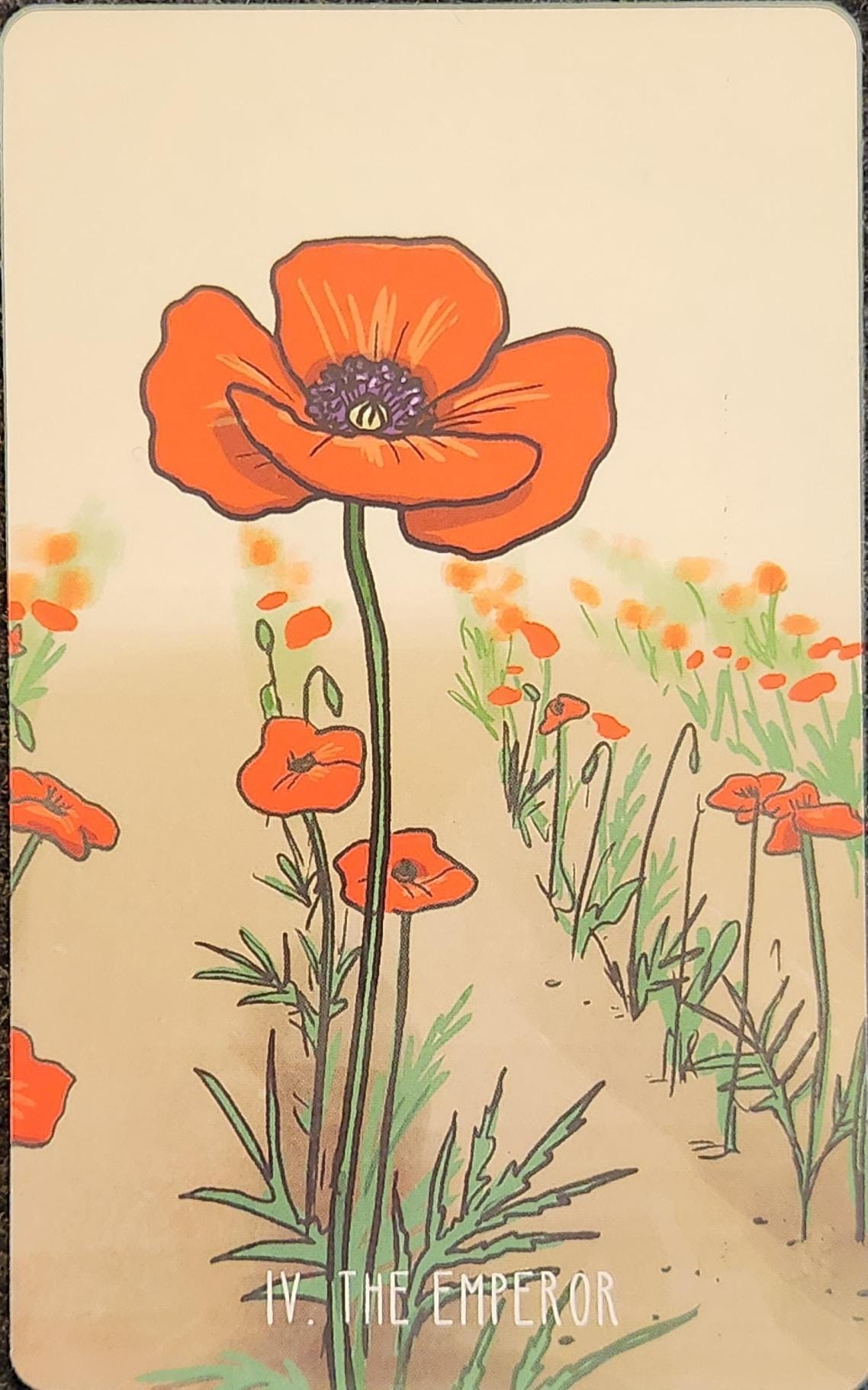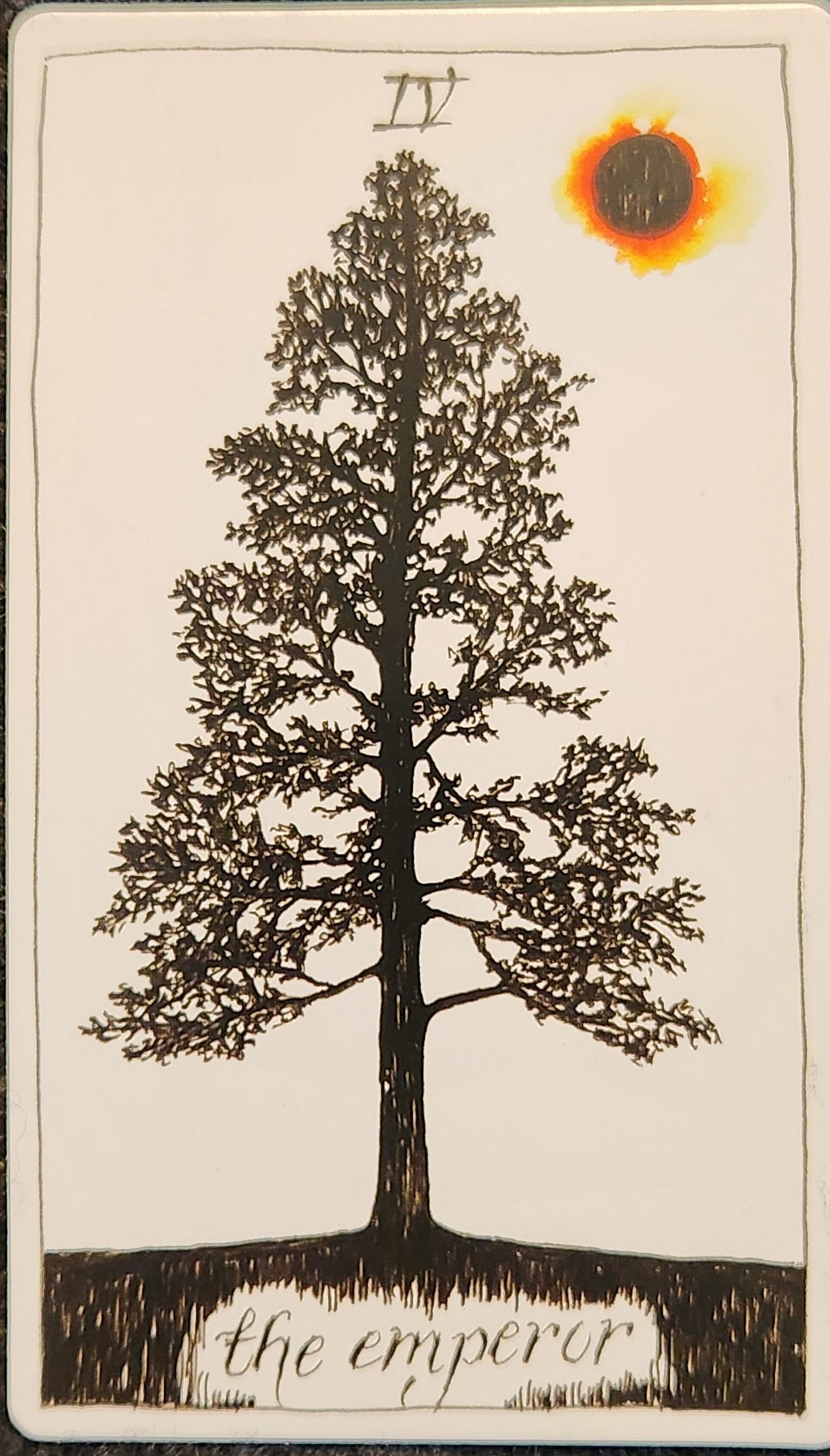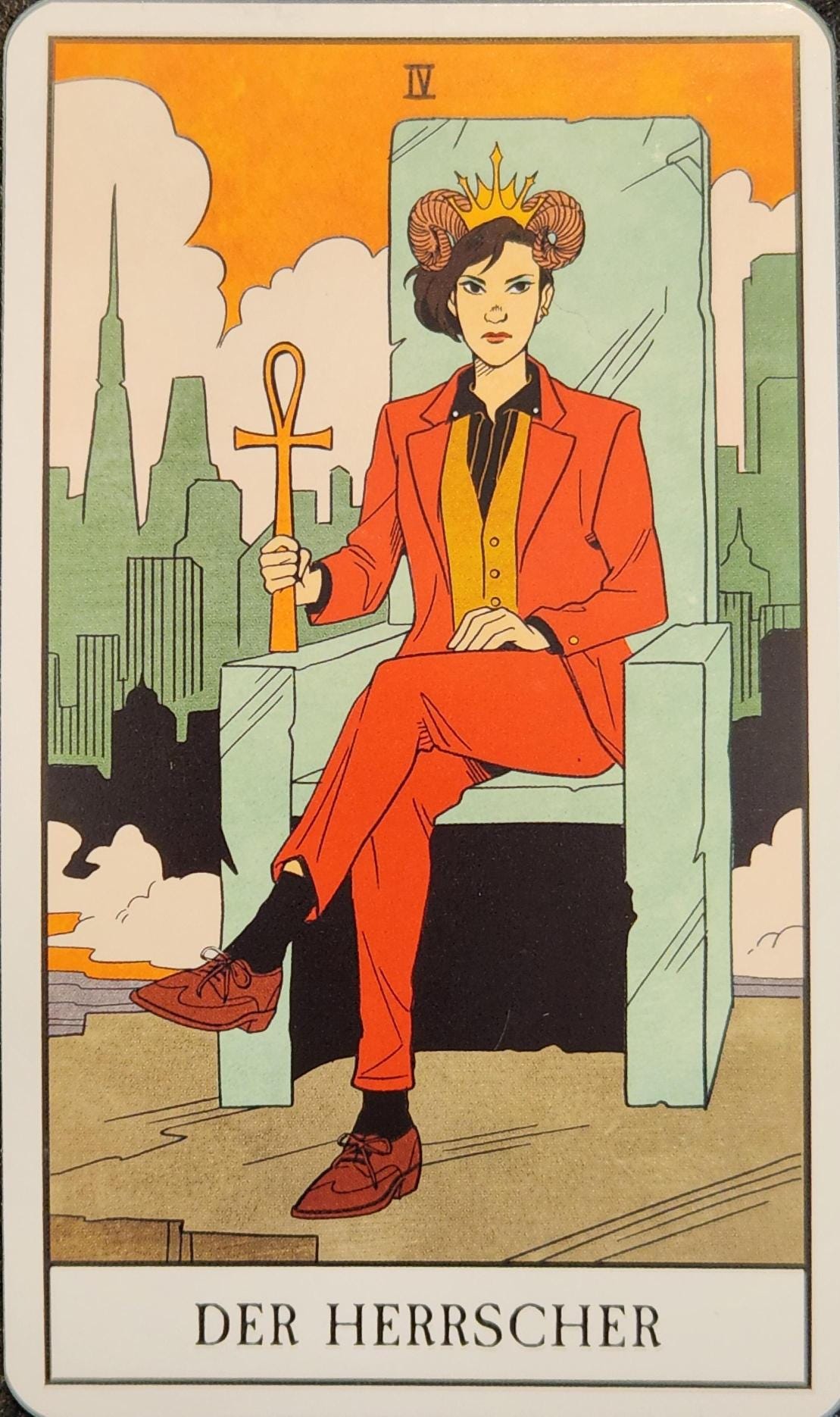While The Empress represents the natural order of things, The Emperor represents human structures or order, stability, power, and law. At its best, it is the card of organisation, of solid foundations, and of clear policy and procedures; on a personal level, The Emperor can also represent boundary setting. At its worst, it is the card of the coloniser, the Empire, and hierarchical power structures. It is the power that serves to reinforce inequitable and unjust systems. The Emperor gives us an opportunity to think about why certain norms, conventions or rules exist, and to question what (and whose) purpose they actually serve.
In the Light Seer’s Tarot, The Emperor sits casually holding a chess piece: The King. This conveys both power and dedication to rules. Perhaps rules that don’t necessarily make sense. Why is the King only able to move 1 square at a time? Why is the King the most important piece in a game of chess, when the Queen is actually much more powerful? On the flip side, however, rules are necessary for players to establish mutual expectations on how to play together.
Activity
Imagine you are visiting your educational institution from another country, continent or even planet. You are someone completely unfamiliar with educational norms on Earth. Write a journal entry observing your educational culture and customs from this outsider perspective.
If you’re unsure where to begin the short article Body Ritual Among the Nacirema may be of interest. This article was published in 1952 by American Anthropologist Horace Mitchell Miner as a satirical look at how anthropologists exoticize other cultures and establish an outsider gaze.
You are invited to share your response to the activity in the comments below.
Reflection Questions
The reflection questions are designed for your own reflection on the archetype and how it may be present in your life and practices. In thinking about The Emperor, consider the following questions:
What vestigial1 policies or practices impact your teaching or educational development? What do you think the original purpose of these policies or practices was? What effect do they have now on education?
References
Miner, H. (Horace M. (1956). Body Ritual Among the Nacirema.
Vestigial is a biological term referring to physical structures or attributes that may have served a purpose in the past but that no longer have a biological function.








I've been so busy I haven't had time to write in response to the prompts over the past few days but I love reading your emails, and this is the card that really stuck with me and made me think exactly because the emperor seems so antithetical to my values, practices, etc. But then I started thinking about language and language rules, and there really are language rules, and I really do obey them and so does everybody else: that's how language works. (And I don't mean superficial stylistic writing conventions, etc.; I mean the deep structural rules about morphology and syntax that are how languages exist)... so at the same time that I'm obeying all those languages rules as I write this, I'm also aware that language is changing; language is changing all the time... but it's like that king on the chessboard (that's the comparison that really got me thinking), only being able to move one square at a time just because he is so rule-bound. Anyway, that's not directly relevant to the questions you ask here about the "emperor" as he figures in our educational contexts (and I'm glad that, being retired now, I am not fighting those imperial forces at my school anymore) -- but my work these days is mostly teaching languages and thinking about language, the Emperor here surprisingly gave me things to think about, so I wanted to make sure I left a comment on this post at least! And thank you for ALL the posts.